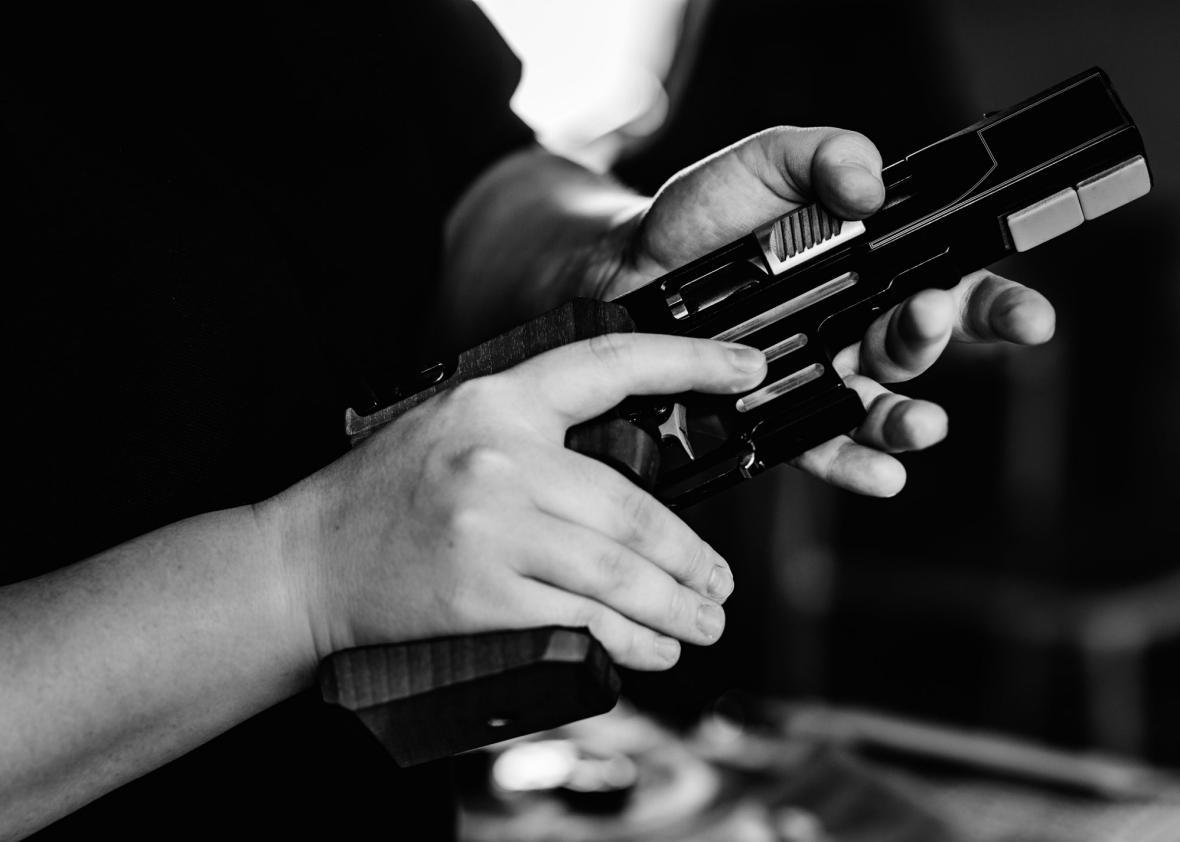In the two months since Donald Trump’s inauguration, the Department of Justice has changed its posture in two high-profile, politically charged court cases, one concerning transgender rights and the other involving voter ID laws. In the first week of March, government lawyers made a similar about-face on the issue of gun safety, submitting a pair of little-noticed but revelatory motions in connection to cases in Georgia and Idaho. Those motions suggest the new administration and Jeff Sessions’ DOJ have already started to find ways to loosen the nation’s gun laws.
Both motions have to do with the same obscure government regulation, which prohibits everyone except hunters from carrying loaded firearms on land managed by the Army Corps of Engineers. The regulation, versions of which have been in place for more than 70 years, applies to some 12 million acres comprising nature trails, lakeside recreation areas, and campsites. Its constitutionality has been challenged in two separate court cases on the grounds that it violates the Second Amendment—an argument that the Justice Department had spent several years defending against prior to Trump’s arrival in the White House.
With the two motions submitted earlier this month, the government has signaled that instead of continuing the fight, the Army Corps of Engineers has agreed to change the regulation and hopes to settle the dispute in mediation instead of in court. “The Army Corps of Engineers is reconsidering the firearms policy challenged in this case, as well as plaintiffs’ requests for permission to carry firearms on Army Corps property,” the two motions read. “This reconsideration has the potential to fully resolve plaintiffs’ objections.”
The lawyer representing the plaintiffs in the Georgia case—in which oral arguments were supposed to be held next month but have now been canceled—told me he believes the DOJ’s new position reflects a new stance on guns in the White House.
“What’s happened is with the change of administration, there’s probably been a change in policy, so they might be looking at changing their regulations,” said John Monroe. “You’d have to ask them, but that’s kind of my assumption.”
Mark Frassetto, counsel for the gun violence prevention organization Everytown for Gun Safety, called the government’s move “the latest troubling sign of how the gun lobby is using its influence in the Trump administration.” (Everytown submitted an amicus brief in the Georgia case.)
It’s unclear whether gun industry lobbyists were involved in the decision to change the Army Corps regulation. Douglas Garman, a spokesman for the Army Corps, declined to answer questions but said in an email that no proposed change to the rule has been published as of yet. A spokeswoman for the Department of Justice did not respond to a request for comment on either the Georgia case or the Idaho case.
It’s no surprise that Trump, whose candidacy was enthusiastically endorsed by the National Rifle Association, would use his powers as president to roll back gun restrictions. Those rollbacks, it seems, are now underway.
